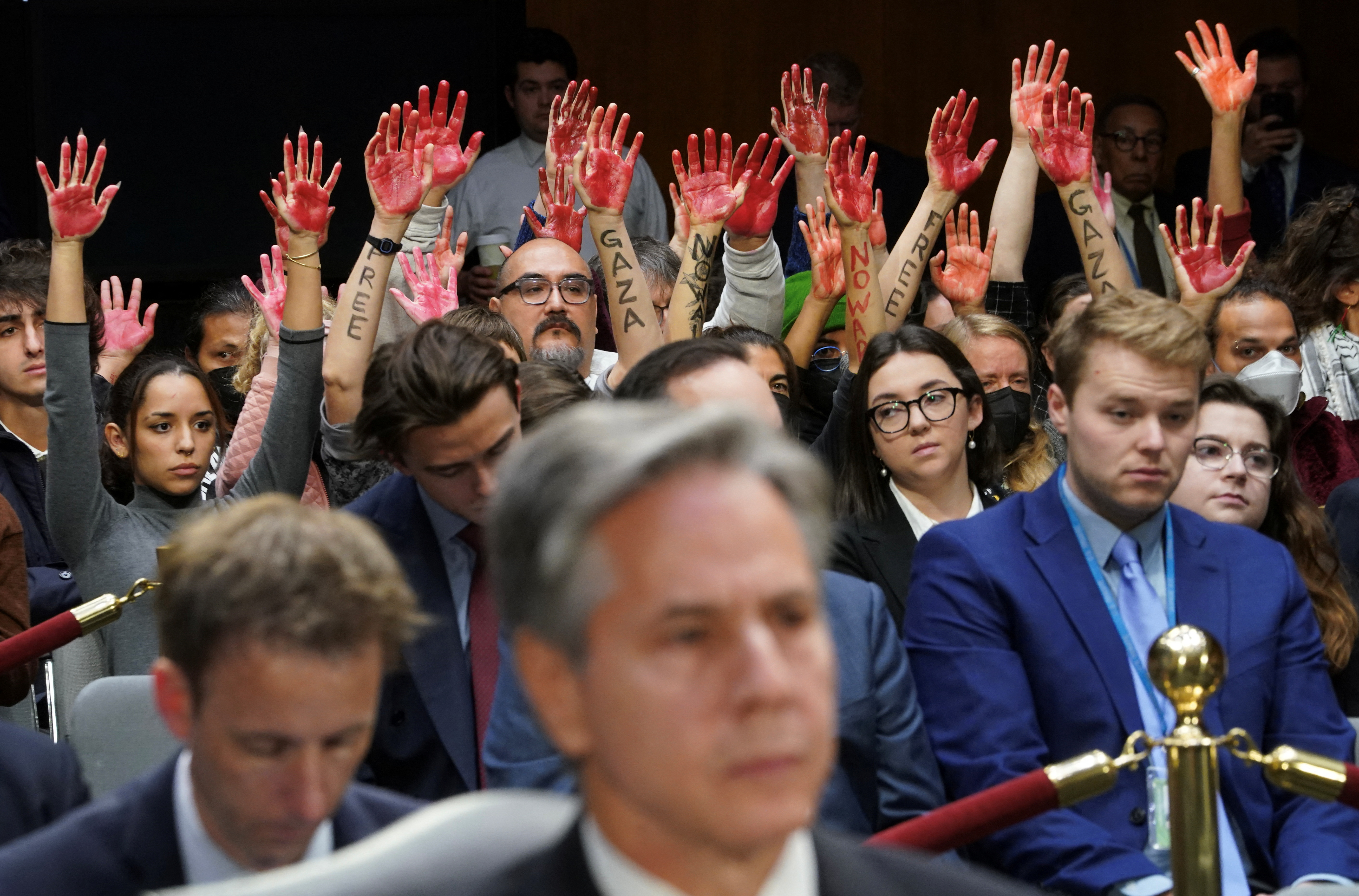
A bipartisan group of 22 members of Congress has expressed concerns over potential funding from Iran to anti-Israel organizations within the United States. This apprehension, detailed in a recent letter, highlights ongoing fears of foreign influence in domestic affairs, particularly regarding protests linked to the Gaza conflict.
Director of National Intelligence Avril Haines confirmed that Iranian government actors have been actively involved in provoking and financially supporting protests in the U.S. over the Gaza war. According to Haines, these actors have posed as activists online, aiming to incite demonstrations and deepen divisions within the U.S. She emphasized that while many American protesters are genuine in their expressions, there are troubling indications of foreign manipulation designed to exploit these movements.
The letter from Congress specifically questions how and why certain protests target particular locations and figures, suggesting an organized effort supported by foreign funding. Representative Brad Schneider (D-IL) pointed out that anti-Israel protests targeting his home and office, equipped with sophisticated materials like sirens and professional banners, raise questions about their funding sources.
House Foreign Affairs Committee Chair Michael McCaul (R-TX) stated that it would not be surprising if Iranian influence were confirmed, signaling a potential investigation into the matter. McCaul also underscored the need to scrutinize the role of social media platforms like TikTok in spreading anti-Israel narratives, which he fears are influencing the younger generation.
This revelation comes as part of a broader concern over foreign interference in U.S. protests, with Iran allegedly using tactics similar to those deployed in previous influence operations. In 2020, for example, Iranian actors posed as members of the far-right group Proud Boys, sending threatening emails to voters in swing states.
The congressional letter and Haines’ statement mark the beginning of a series of public updates on foreign influence operations, especially with the 2024 election approaching. There is a call for increased vigilance among Americans when interacting with online entities they do not personally know, to avoid unwittingly participating in foreign-sponsored activities.
As this issue unfolds, lawmakers and intelligence officials continue to urge transparency and accountability, stressing the importance of addressing these foreign influence efforts to protect the integrity of American democratic processes.




